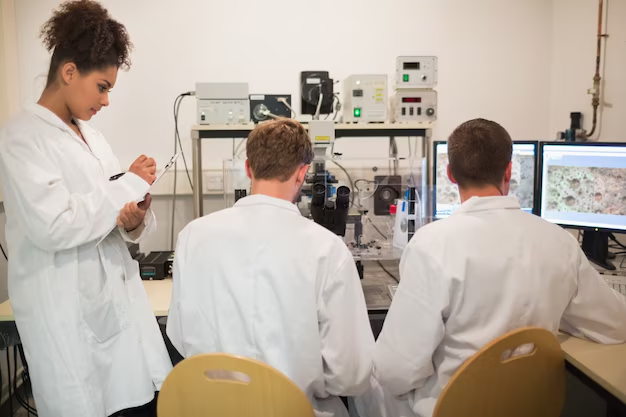Is Osteoporosis Passed Down Through Families? Here's What You Should Know
Osteoporosis, a condition characterized by weak and brittle bones, often progresses silently, earning it the moniker "silent disease." As we strive to understand its origins better, a lingering question arises: Is osteoporosis inherited? In this article, we'll unravel the genetic links to osteoporosis while exploring various factors that may influence its development. Whether you're concerned about your family's health history or seeking ways to mitigate your risk, join us on a journey through the complexities of osteoporosis.
Understanding Osteoporosis
Osteoporosis affects millions globally, increasing the risk of fractures, particularly in the hip, spine, and wrist. It develops when bone density decreases, leaving bones porous and fragile. While anyone can develop osteoporosis, it's typically seen in older adults, especially postmenopausal women. Understanding the causes can provide insight into prevention and management strategies.
The Genetics of Osteoporosis
Can osteoporosis be inherited? Yes, research indicates a genetic component influences bone health. If your parents or siblings have had osteoporosis or related fractures, you're more likely to develop the condition.
Hereditary Factors
- Family History: Gene variants linked to bone density and strength can pass from generation to generation. A family history of osteoporosis may signal a higher risk.
- Ethnicity: Caucasian and Asian populations have a higher prevalence of osteoporosis-related genes, increasing risk.
- Hormonal Changes: Genetic predispositions may also affect hormonal balances, crucial for maintaining bone health.
Despite these hereditary factors, having a family history doesn't guarantee you'll develop osteoporosis—lifestyle and environmental factors also play significant roles.
Lifestyle and Environmental Influences
Even with a genetic predisposition, certain modifiable factors can influence the onset and severity of osteoporosis, offering opportunities for prevention.
Diet and Nutrition
Calcium and Vitamin D: Essential for bone health, a diet rich in these nutrients helps maintain bone density. Dairy, leafy greens, and fortified foods are excellent calcium sources, while sunlight and supplements can provide Vitamin D.
Protein Intake: bones are made of collagen, a protein. Adequate protein intake supports bone health, while excessive amounts might lead to calcium loss.
Caffeine and Alcohol: High caffeine and alcohol consumption can negatively affect bone density. Moderation is key.
Exercise and Physical Activity
Weight-bearing exercises, such as walking, jogging, or strength training, are crucial for stimulating bone growth and maintaining density. Regular physical activity enhances balance and coordination, reducing the risk of falls and fractures.
Lifestyle Choices
Smoking: Smoking has been linked to decreased bone density and increased fracture risk, exacerbating genetic predispositions.
Medication Use: Some medications, like corticosteroids, can negatively affect bone health. Discuss alternative treatments with healthcare providers if necessary.
Hormonal Factors
Not just genetics and lifestyle, but hormonal changes significantly influence osteoporosis risk.
Gender and Hormonal Changes
- Estrogen and Menopause: Women experience rapid bone loss following menopause due to a drop in estrogen levels, which is crucial for bone maintenance.
- Testosterone Levels in Men: Men produce less testosterone as they age, affecting bone density.
Testing and Diagnosis
Recognizing osteoporosis early can significantly alter management strategies and prevent complications.
Bone Density Tests
The most reliable method for diagnosing osteoporosis is through bone density tests, often recommended for adults over 65 or those with risk factors. These tests can assess bone health and help predict fracture risk.
Genetic Testing
Some genetic tests can identify variants linked to osteoporosis, although their use is typically limited to research settings rather than routine clinical practice.
Prevention and Management Strategies
Whether genetically inclined or not, actionable strategies exist to prevent osteoporosis or manage its progression effectively.
Diet and Lifestyle Adjustments
- Focus on nutrient-rich foods, ensuring adequate calcium and Vitamin D intake.
- Engage in regular physical activity, combining weight-bearing and strength-training exercises.
- Avoid smoking and limit alcohol and caffeine consumption.
Medical Approaches
Medications: Depending on your risk profile, doctors might prescribe medications, such as bisphosphonates or hormone replacement therapy.
Regular Screenings: Especially if you have a family history, regular screenings can catch bone density issues early, providing ample opportunity for intervention.
Support Systems
Healthcare Provider Guidance: Routine check-ups and open dialogue with healthcare providers ensure optimal management.
Community Support Groups: Joining support groups offers community and shared learning experiences.
Challenging Myths Around Osteoporosis
Despite increased awareness, several myths still surround osteoporosis, particularly regarding its causes and who it affects.
Common Misconceptions
Osteoporosis Afflicts Only Women: While women are more predisposed, men are also at risk, especially with advancing age.
It's an Inevitable Part of Aging: While bone density decreases with age, osteoporosis isn't a given. Lifestyle changes can reduce the risk significantly.
Empowering Yourself Against Osteoporosis
Understanding your risk and proactive management are empowering steps toward maintaining bone health. Awareness of personal and family health history, coupled with a healthy lifestyle, forms the cornerstone of osteoporosis prevention.
By acknowledging both hereditary and non-heritable factors, you can devise a comprehensive plan to mitigate risks, irrespective of genetic predisposition.
Key Takeaways:
- Balanced Diet: Prioritize calcium, Vitamin D, and protein.
- Active Lifestyle: Engage in regular exercise to strengthen bones.
- Avoid Risky Habits: Reduce smoking and moderate alcohol consumption.
Taking charge of your bone health today can lead to a vibrant and active tomorrow—a proactive step worth taking.
Summary: Empower Your Bone Health 🦴
- Genetic Factors: Family history can increase risk, but not certainty.
- Lifestyle Influences: Diet, exercise, and habits play a pivotal role.
- Hormonal Changes: Age-related hormonal shifts affect bone density.
- Testing & Prevention: Regular screenings and proactive lifestyle changes are key.
- Myths: Men too can develop osteoporosis; it's not an aging certainty.
Stay informed, stay active, and take charge of your bone health today! 💪

Related Articles
- a Nurse Is Caring For a Client Who Has Osteoporosis.
- a Percutaneous Is Performed To Treat Osteoporosis Related Compression Fractures
- Can Alcohol Cause Osteoporosis
- Can I Do Pilates If I Have Osteoporosis
- Can I Reverse Osteoporosis
- Can Men Get Osteoporosis
- Can Osteoporosis Affect Teeth
- Can Osteoporosis Be Cured
- Can Osteoporosis Be Painful
- Can Osteoporosis Be Reversed
